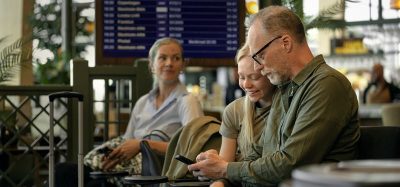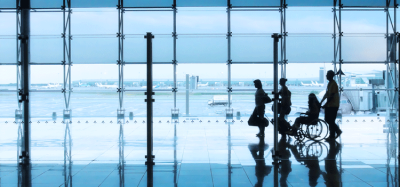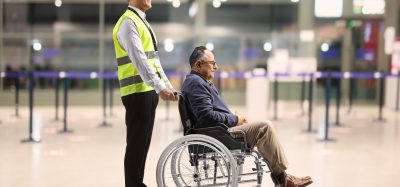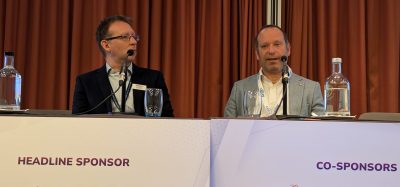IATA releases Fly Net Zero update
- Like
- Digg
- Del
- Tumblr
- VKontakte
- Buffer
- Love This
- Odnoklassniki
- Meneame
- Blogger
- Amazon
- Yahoo Mail
- Gmail
- AOL
- Newsvine
- HackerNews
- Evernote
- MySpace
- Mail.ru
- Viadeo
- Line
- Comments
- Yummly
- SMS
- Viber
- Telegram
- Subscribe
- Skype
- Facebook Messenger
- Kakao
- LiveJournal
- Yammer
- Edgar
- Fintel
- Mix
- Instapaper
- Copy Link
Posted: 18 March 2024 | International Airport Review | No comments yet
IATA’s shares a short overview of the latest industry developments in January and February.
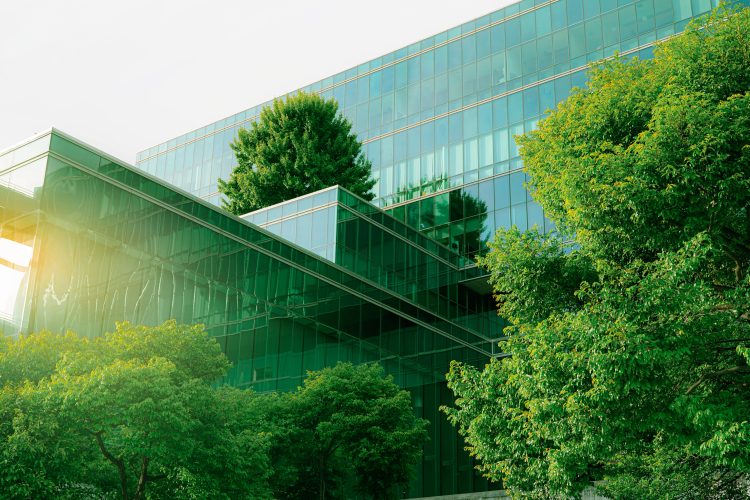

IATA shares a short overview of the latest industry developments in January and February on the road to #FlyNetZero carbon emissions by 2050.
Read on for IATA’s Fly Net Zero media update, sharing a short overview of the latest industry developments in January and February on the road to #FlyNetZero carbon emissions by 2050.
Sustainable Aviation Fuel (SAF)
Korean Air Lines announced a partnership agreement with Japanese global logistics company Yusen Logistics for a sustainable aviation fuel (SAF) cooperation programme for Cargo. The Civil Aviation Authority of Singapore (CAAS) launched the Singapore Sustainable Air Hub Blueprint in consultation with industry and other stakeholders, which sets out Singapore’s action plan for the decarbonisation of its aviation sector.
Cathay announced the addition of three new partners to its Corporate SAF Programme. Cathay is also the co-initiator of the Hong Kong Sustainable Aviation Fuel Coalition (HKSAFC), seeking to grow Hong Kong as a regional SAF hub. Japan Airlines (JAL) has signed a partnership agreement with Yokohama City to establish and implement a system for collecting used cooking oil from households for its utilization as SAF feedstock. This is part of the “Fry to Fly“ project and will start mid- March.
In Europe, Neste and Amelia, a French regional airline, have closed an agreement for the supply of SAF. Amelia has been using SAF for all its flights departing from Amsterdam Airport Schiphol since 0w1 January 2024. Neste also announced that, together with partner companies, they have concluded an E-Fuel research project showcasing progress in the development of electro fuels.
Meanwhile, Norwegian has become a co-owner of Norsk e-Fuel, building up on the strategic partnership agreement signed in 2023, with plans to build the world’s first large-scale production facility for electro fuel. SAF technology company Velocys announced that it raised $40 million in growth capital, shortly after de-listing from the London Stock Exchange’s AIM market and indicating a need to raise capital to continue operating. Spain’s Cepsa and Apical Group’s Bio-Oils began building the largest second-generation biofuels plant in southern Europe. able to produce 500,000 tonnes of renewable diesel and SAF per year.
IAG announced its largest SAF purchase agreement to date, with e-SAF producer Twelve, which will supply advanced e-SAF made from made from CO2, water and renewable energy. Under the terms of the fourteen-year contract, Twelve will supply IAG with 785,000 tonnes of e-SAF to support its five European airlines. Emirates joined The Solent Cluster, a UK low carbon investment initiative focused on low carbon investments established to reduce CO2 emissions from industry, transport and households in the South Coast of England. The Solent Cluster has the potential to create a SAF plant with an estimated fuel production capacity of 200,000 tonnes (200 kt) per year.
Canada’s sustainable aviation ecosystem, including airlines, airport authorities, aerospace manufacturers, and industry groups, have written to Finance Minister seeking bold action in the 2024 budget to incentivise the Canadian production of SAF. Also in Canada, Azure Sustainable Fuels Corp., reached milestones in its development of a renewable fuel production facility that could produce approximately 20,000 barrels per day of predominantly SAF with first production targeted for 2027. The Government of Canada also announced a CAD$15 million clean fuels projects across the country, including for SAF.
In the US, United announced that Aircastle, Air New Zealand, Embraer, Google, HIS, Natixis Corporate & Investment Banking, Safran Corporate Ventures, and Technip Energies are now among the 22 corporate partners that make up the airline’s The United Airlines Ventures Sustainable Flight Fund, a first-of-its kind effort to reduce emissions and drive production of SAF through investments in start ups, which now exceeds $200 million. LanzaJet opened LanzaJet Freedom Pines Fuels, the world’s first ethanol to SAF production facility. Located in Soperton, Georgia, LanzaJet Freedom Pines Fuels will produce 10 million gallons of SAF and renewable diesel per year.
The company also announced a $30 million investment by Southwest Airlines in LanzaJet. As part of the agreement, LanzaJet and Southwest intend to work toward the development of a SAF production facility and collaborate to advance the operations of a corn stover to ethanol technology company in which Southwest is invested: SAFFiRE Renewables. Blue Biofuels Inc. and Vertimass, LLC, have created a partnership to produce SAF and renewable propane and butane (rLPG) as co-products from ethanol. Sugar Valley Energy aims to produce sustainable aviation fuel (SAF) for the airline industry. The project could produce up to 61 million gallons of SAF annually.
Hydrogen
Swiss explorer Bertrand Piccard unveiled Climate Impulse, his new emission-free project: a green hydrogen-powered airplane to fly non-stop around the Earth, demonstrating how concrete solutions can help build a cleaner and more efficient world. Universal Hydrogen successfully powered a megawatt-class fuel cell powertrain, the largest ever, using its proprietary liquid hydrogen module. Turbotech and Safran successfully completed the first test of a hydrogen-fuelled aero gas turbine engine with ultra-high performance regenerative cycle.
Cranfield Aerospace Solutions, Exeter Airport Consortium and ZeroAvia will work closely with the UK Civil Aviation Authority to increase readiness of industry and the regulator for hydrogen fuel, as part of the Hydrogen Challenge Sandbox. ZeroAvia and Verne announced that they have signed an MOU to jointly evaluate the opportunities for using cryo-compressed hydrogen on-board aircraft and for airports. Airbus, Avinor, SAS, Swedavia and Vattenfall have signed a MoU to investigate the feasibility of a hydrogen infrastructure at airports in Sweden and Norway.
ZeroAvia also announced that it has been awarded $3.25 million in funding by the California Energy Commission (CEC) to develop a first-of-a-kind mobile liquid hydrogen (LH2) refuelling truck for heavy-duty applications, including aviation and maritime.
Electricity
Swedish hybrid-electric airplane maker Heart Aerospace announced it raised a total of $107 million in Series B funding, representing another significant stepping stone toward sustainable regional air travel. Swissport Italy will invest Euro 11 million in electric vehicles at Rome Fiumicino airport.
These include tractors for towing and push-back of long-haul aircraft, passenger buses, baggage belts, cargo loaders, and transporters. Additionally, the fleet of baggage tractors has been revamped, with 50 new electric tractors operational at Fiumicino and another 70 scheduled for delivery before summer.
Airports
Long Beach Airport (LGB) announced the availability of SAF for use by general aviation jets, through Atlantic Aviation, one of two fixed-base operators at the airport.
daa, the operator of Dublin and Cork airports, has unveiled details of 20 environmental sustainability initiatives being rolled out at Dublin and Cork Airports, which will accelerate both airports’ climate and sustainability related ambitions, including achieving net zero emissions by 2050 at the latest. Tallinn Airport has joined the Baltic Sea region (BSR) HyAirport project, which aims to amass knowledge and create conditions for the adoption of hydrogen in aviation. The three-year project involves airports, airlines, research establishments and technology companies in Scandinavia, the Baltic States, Poland and Germany.
Sustainability
IndiGo has partnered with Swedish innovation company Altered, to fit its fleet of aircraft with innovative nozzles that can help reduce on-board water consumption by up to 98%. Cathay Cargo Terminal became the first cargo terminal in Hong Kong to adopt 50% recycled plastic cargo cover sheets for all Export Cargo shipments built up within its terminal, increasing from its current specifications of no less than 30% recycled content.
CDP Environmental Rankings
ANA Holdings. was the only airline group to be awarded an A grade in the 2023 CDP rankings for disclosing actionable, high quality environmental data. CDP’s rankings are routinely used by companies to inform their procurement decisions. easyJet, Ryanair, Turkish Airlines and United Airlines all improved their grades from B in 2022 to A- in the 2023 rankings Air Canada, Air France-KLM, IAG, JetBlue, Korean Air, Lufthansa Group and Wizz Air all achieved B grades.
Related topics
Social responsibility, Sustainability, Sustainable Aviation Fuel (SAF), Sustainable development, Workforce
Related airports
Amsterdam Airport Schiphol (AMS), Long Beach Airport (LGB), Rome Fiumicino Airport, Tallinn Airport (TLL)
Related airlines
Air Canada, Air France-KLM, Air New Zealand, Aircastle, easyJet, Emirates, IAG, Japan Airlines (JAL), JetBlue, Korean Air, Korean Air Lines, Lufthansa Group, Norwegian, Ryanair, Turkish Airlines, United, United Airlines, Wizz Air
Related organisations
Amelia, Cathay Pacific Services Limited (CPSL), daa, Neste, Swissport Italy, The Civil Aviation Authority of Singapore (CAAS)




